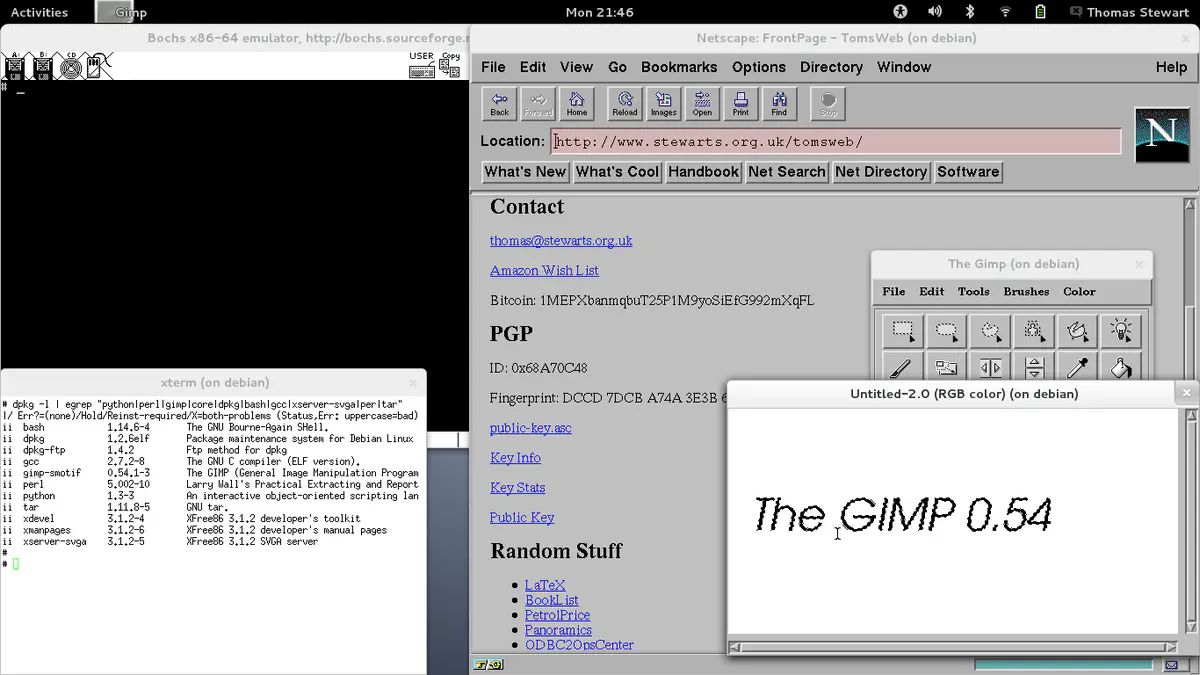Looking Back On 30 Years of Debian - 2 minutes read

The early history of Linux is a rather murky period to most, long before the era of glitzy marketing and proclamations of ‘the Linux desktop’ being the next hot thing. This was also the era when the first Linux distributions were born, as the Linux kernel never came as a whole OS package – unlike the BSDs – which necessitated others to package it with the elements that make up kernel and user space, such as the GNU tools.
One of these original distributions was Debian, which this month celebrates its 30th birthday. Its entire history, starting with the initial 0.01 release is covered in great detail on the Debian website. After the first release of the Linux kernel in 1991, it would take until August of 1993 when [Ian Murdock] embarked on the Debian project, sponsored by the GNU Project of the Free Software Foundation. This was a pretty rough period, with much of 1994 spent figuring out the basics of the system, the package manager and establishing a release system.
After [Ian Murdock] left the Debian project, [Bruce Perens] would follow in his footsteps, with Debian 1.1 (“Buzz”) being the first release in the 1.x series on June 17th of 1996. This and each successive release would feature a character name from the ‘Toy Story’ movie alongside the increase in its version number. Notable is that ‘Sid’ is the name for the (rolling release) unstable branch, indicating the volatile nature of this branch, matching the destructive nature of the Sid character in Toy Story.
This year we saw the release of Debian 12 (“Bookworm”), with no sign of the project letting up after celebrating such a notable milestone. Interesting is also how many Debian-derived distributions exist today, with Ubuntu, Linux Mint and Raspberry Pi OS (previously Raspbian) ) being among the most well-known, yet existing alongside some of the original distribution lineages like Slackware and Red Hat. Although the Linux ecosystem is not as small and cozy as it was in the 1990s, it would seem that there is plenty of room for Debian to remain a solid foundation for most things Linux and FOSS operating systems.
Heading image: Debian Buzz (1.1) running under Bochs. (Credit: Thomas Stewart)
Source: Hackaday
Powered by NewsAPI.org